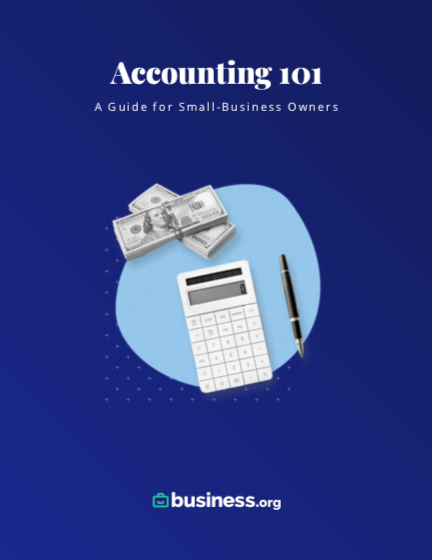We are committed to sharing unbiased reviews. Some of the links on our site are from our partners who compensate us. Read our editorial guidelines and advertising disclosure.
Worried About Your Money? This Is How the FDIC Protects Your Small Business
Syndicated from The Penny Hoarder
The sudden collapse of Silicon Valley Bank and Signature Bank have raised questions about federal protections on bank deposits.
The good news is that deposit insurance works and you shouldn’t have to worry about your money.
Depositors at those banks had full access to their funds as of Monday, March 13, after the federal government stepped in and took emergency measures.
Typically, the Federal Deposit Insurance Corporation (FDIC) only insures deposits up to $250,000.
Silicon Valley Bank wasn’t a typical bank though. It catered to technology startup companies and venture capital firms. Because of this, most of the deposits at SVB were in business accounts with balances well above the FDIC insured $250,000 cap.
However, the FDIC and Federal Reserve evoked a systematic risk exception — creating a temporary “bridge bank” — in order to avert a broader crisis in the financial system and insure all deposits.
So your money is safe in an FDIC insured bank, right?
Yes, here is everything you need to know about how FDIC insurance protects your deposits and what happens if your financial institution goes under.
What is the FDIC?
The FDIC is an independent federal agency. Its primary function is to protect depositors’ money from bank failures.
FDIC insurance is backed by the full faith and credit of the U.S. government. In other words, the federal government guarantees your funds will always be accessible in an FDIC-insured bank.
Each depositor is covered up to $250,000, and accounts with different legal ownership are insured separately.
- For example, if you have deposit accounts at three different FDIC-insured banks, you are covered up to $250,000 at each one.
- Or if you own a savings account and a checking account at a single bank, they are both covered separately up to $250,000.
- If you own a joint checking or savings account with someone, the account is insured up to $500,000 — $250,000 for each account holder.
By signing up I agree to the Terms of Use and Privacy Policy.
Are credit unions FDIC-insured?
Credit unions are regulated differently from banks. The National Credit Union Administration (NCUA) charters, regulates and monitors federal credit unions.
Credit unions maintain their own federal deposit insurance through the National Credit Union Share Insurance Fund (NCUSIF). This insurance is similar to FDIC protection, with up to $250,000 insured for each deposit account and owner.
Whether you deposit money at a bank or credit union, you can rest assured your cash is safe.
What does the FDIC cover?
The FDIC insures more than just checking and savings accounts.
Financial accounts covered by the FDIC:
- Checking accounts (including joint accounts)
- Savings accounts (including joint accounts)
- Certificates of deposit (CDs)
- Money market accounts
- Cashier’s checks
- Money orders
- Trust accounts
You don't need to sign up for FDIC deposit insurance coverage. If you open a qualifying account (like the ones listed above) at an FDIC-backed bank, you're automatically covered up to $250,000 per bank, per person, per account type.
What the FDIC doesn’t cover
While the FDIC keeps your bank deposits safe, it doesn’t offer protection for investments such as stocks, bonds, mutual funds and annuities.
Even if you purchase these investments from a bank, they are not FDIC insured.
The following are not covered by FDIC insurance:
- Life insurance policies
- Stocks, bonds and mutual funds
- Safe deposit boxes or their contents
- Government securities
- Annuities
- Money in apps such as PayPal or Venmo
- Cryptocurrency
The FDIC also doesn't cover losses resulting from fraud or theft. It only protects your money in the event of a bank failure.
If you believe you've been the victim of fraud or theft, you should immediately contact your financial institution and speak with a bank representative.
How does the FDIC work?
Like any other insurance company, the Federal Deposit Insurance Corp. is funded by insurance premiums paid by member banks for protection against bank runs.
Bank runs happen when customers get nervous about a bank’s solvency and withdraw all their money. If the situation snowballs, banks can ultimately run out of money and fail — taking the economy down with them.
If the worst-case-scenario happens and an FDIC-insured institution goes under, the agency steps in to reimburse account holders for their deposits.
The FDIC performs a few other functions besides insuring bank deposits, including:
- Ensuring financial institutions comply with various consumer protection and safety laws including the Truth in Savings Act and the Electronic Fund Transfer Act.
- Selling assets and settling debt of failed banks.
- Providing educational resources to the public through its website and community partnership programs.
Why was the FDIC created?
We often take FDIC protections for granted. But in many ways, the agency serves as the backbone of the U.S. financial system.
Before the FDIC was created in 1934, insurance for banks didn’t exist.
The Federal Deposit Insurance Corporation was established after thousands — yes, thousands — of banks failed following the biggest stock market crash in U.S. history in 1929.
Millions of families lost their entire life savings. An estimated $140 billion in bank deposits vanished, plunging the country into the Great Depression.
To put things in perspective, about 9,000 banks failed between 1930 and 1933 — 4,000 banks in 1933 alone.
This shook public confidence in the entire banking system because people had no financial recourse if their bank went bust. Their money was simply gone.
Congress created the Federal Deposit Insurance Corporation as an independent agency to insure financial institutions and bring more stability to the U.S. banking system. The FDIC became operational on Jan. 1, 1934 and later became a permanent government agency through the Banking Act of 1935.
Now when banks fail, FDIC deposit insurance steps in to protect account holders. This has helped maintain stability and bolster public confidence in the U.S. financial system.
According to the FDIC’s website: “Since 1933, no depositor has ever lost a penny of FDIC-insured funds.”
How to check your bank’s FDIC status
Most banks — including many online-only banks — are FDIC insured. It is rare for a bank not to have FDIC insurance.
Some companies that offer online financial services — known as neobanks — aren’t really banks at all. Rather, companies like Found, Bluevine and Lili are technology companies that provide business banking and software.
However, on the back-end, your money is still safe and managed by a traditional FDIC-insured bank. For example, Piermont Bank partners with Found to administer banking services.
If you want to open an account with a neobank, make sure to research the actual bank behind the fintech company that will be securing your money.
As of March 2022, 4,708 financial institutions in the U.S. were FDIC-insured. You can use the agency’s BankFind tool to see a list of FDIC-insured banks.
You can also use the FDIC's Electronic Deposit Insurance Estimator to help determine if you have adequate insurance for your deposit accounts.
What happens if your bank fails?
When banks fail, the FDIC steps in and reimburses all eligible account holders up to the specified FDIC insurance limit.
You do not need to file a claim to get your insured money. The process happens automatically.
When a bank failure occurs, the FDIC takes one of two steps. The most common practice is to sell deposits and loans of the failed institution to another institution. Basically, a healthy bank takes over the insured deposits of the failed bank.
Your new FDIC-insured bank account will have the same amount of money as your old account, up to the FDIC coverage limit. The transition is usually pretty seamless from the customer's point of view.
You aren’t stuck with this new bank. You can withdraw your funds without penalty once the transition is complete.
The FDIC is required by federal law to make insurance payments to depositors as quickly as possible. You can usually access your funds just one or two business days after a bank closes.
A less common practice after a bank closes is issuing the account holder a check for the amount held at the failed bank. If this happens, the FDIC will send a letter to you informing you of the closing.
According to the FDIC website, 562 banks have failed nationwide since 2001.
A bulk of these bank failures — about 83% — took place between 2008 and 2012 following the housing market bust and ensuing financial crisis now known as the Great Recession.
For perspective, just five banks have failed since 2018.
What happens to uninsured money after a bank fails?
Any money that exceeds FDIC insurance limits is considered uninsured, though the FDIC does make exceptions sometimes.
Remember: This is more than $250,000 held by a single depositor within a single FDIC-insured account at a single financial institution.
You may be able to recoup some of these uninsured funds if the FDIC can find a buyer for the failed bank’s assets.
Here’s how this can play out:
- A depositor has a single account with a balance of $255,000. If the FDIC-insured bank fails, the account holder will receive $250,000 of FDIC insurance.
- The depositor will also receive a $5,000 claim against the estate of the closed bank, and will be given a receiver's certificate as proof of the claim.
- Over time, the depositor may receive payments for their $5,000 claim as the assets of the bank are liquidated.
Don’t expect to see money from your uninsured claim anytime soon, though. Even the FDIC acknowledges it can take years to sell off a failed bank’s assets.
Plus there’s no guarantee you’ll get all that uninsured money back after the fact. As the FDIC puts it: “As assets are sold, depositors who had uninsured funds usually receive periodic payments — on a pro-rata ‘cents on the dollar’ basis — on their remaining claim.”
4 tips to keep your deposits safe
In a time of economic uncertainty, there are additional steps you can take to help keep your money safe.
- Only open accounts with an FDIC-insured bank. You can usually find the FDIC logo at the teller window, front door or on the bank’s website.
- Spread the wealth. You can insure deposits above $250,000 by breaking your bank deposits into smaller chunks and spreading them across different FDIC-insured institutions. You can also make deposits in a money market account or joint account to ensure the full amount is protected.
- Be smart about digital banking. Protect your bank account with a complex password or use a password manager, and change the password routinely. Conduct banking transactions only on a secured Internet connection.
- Be aware of scams. Look out for fraudsters claiming to be the FDIC. The federal agency will never ask you to verify your bank account information over email. If you’re doubtful about the validity of an email, do not click on any links or attachments.
Here are our top picks for small business banks
Data effective 1/10/23. At publishing time, rates, fees, and requirements are current but are subject to change. Offers may not be available in all areas.
Rachel Christian is a Certified Educator in Personal Finance and a senior writer for The Penny Hoarder. She focuses on retirement, taxes, investing and life insurance.
Related content
Disclaimer
At Business.org, our research is meant to offer general product and service recommendations. We don't guarantee that our suggestions will work best for each individual or business, so consider your unique needs when choosing products and services.







